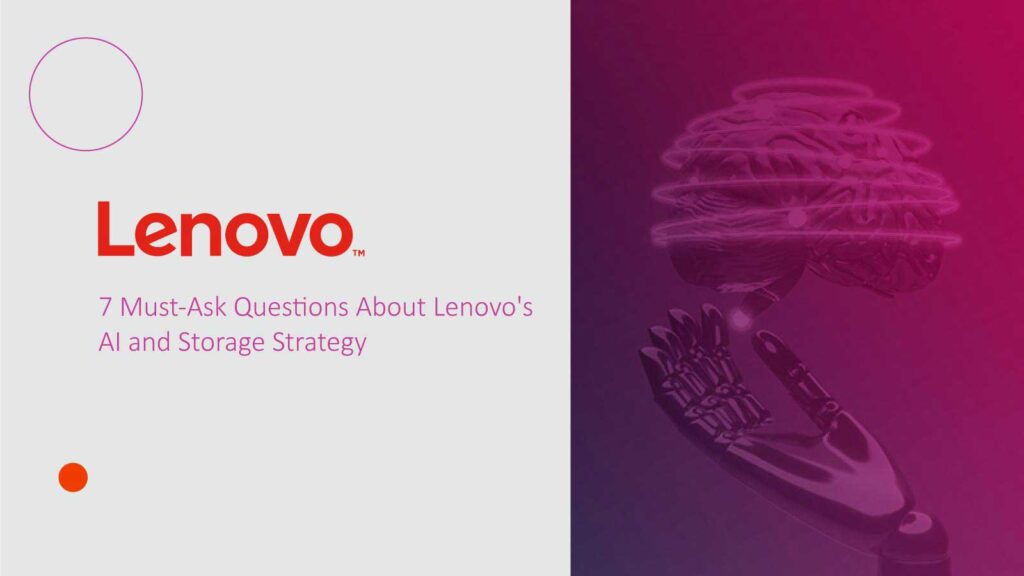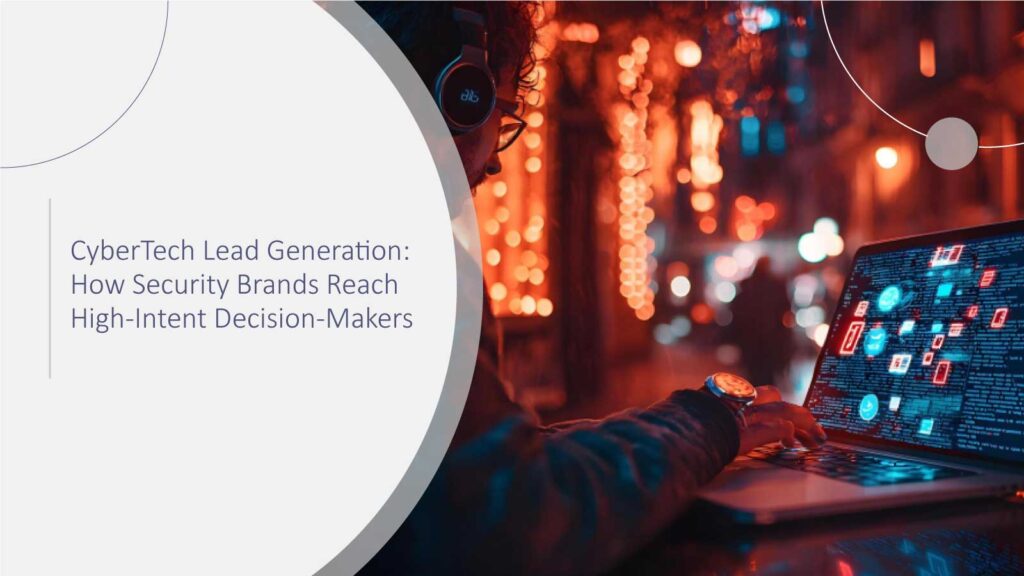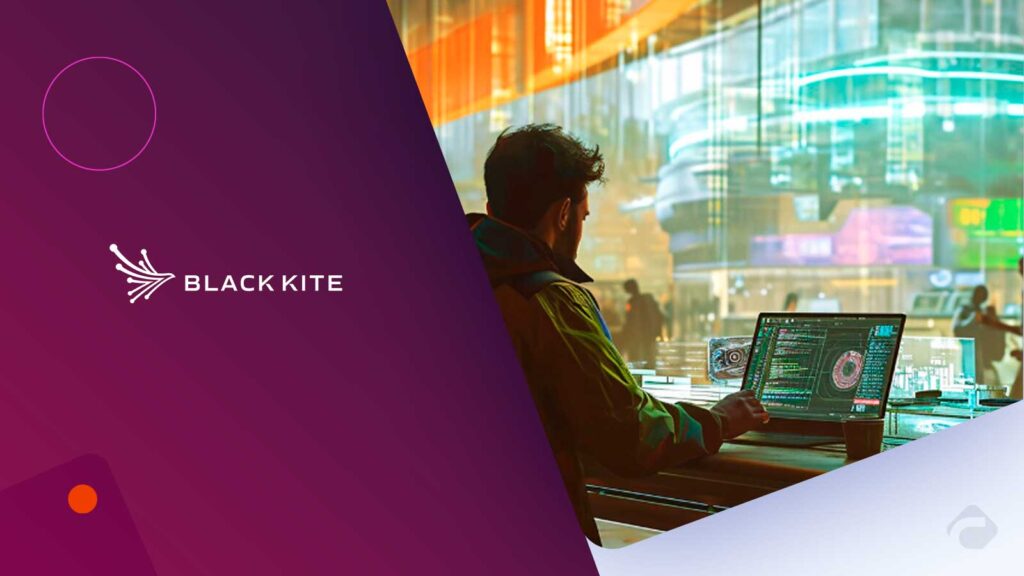AI and data storage solutions have emerged as a formidable combination for IT organizations. Last week, technology giant Lenovo announced it signed a definitive agreement to acquire Infinidat, a leading data storage solutions provider. Lenovo’s acquisition of Infinidat and its cutting-edge AI hardware promises to reshape the future of enterprise storage and IT operations. But, with these significant advancements come important questions for CIOs, CISOs, and IT leaders.
In this CyberTech Insights article, we’ve compiled the top seven AI-generated FAQs to help you understand how Lenovo’s strategic moves, including the Infinidat deal and its AI-powered solutions, are set to impact the way organizations manage and secure their data in the hybrid, multi-cloud era.
FAQ 1: What are the latest trends in data protection?
The landscape of data protection is evolving with several key trends:
Ransomware resilience: Organizations are adopting proactive measures such as immutable backups, AI-driven threat detection, and enhanced encryption to protect against ransomware attacks.
Data sovereignty: With increasing regulatory scrutiny, businesses focus on ensuring data is stored and managed in compliance with local laws.
Multi-Cloud and Hybrid Cloud: As companies adopt multi-cloud strategies, data protection solutions are becoming more sophisticated to handle complex hybrid environments.
AI-driven security: Artificial intelligence is being used to detect anomalies in real time, automate responses to threats, and enhance proactive data protection.
FAQ 2: How is AIOps transforming IT operations?
AIOps (Artificial Intelligence for IT Operations) revolutionizes how businesses manage and optimize their IT environments.
Key benefits include:
Automation of routine tasks: AIOps workflows automate repetitive tasks like monitoring and incident response, freeing up IT teams for higher-level work.
Proactive problem solving: AIOps uses machine learning to predict issues before they occur, helping IT teams resolve potential disruptions before they impact business operation.
Cyber Technology Insights: Prompt Security Unveils Enhanced Solution for GitHub Copilot
Faster incident resolution: AI and machine learning algorithms help identify and resolve issues more quickly by correlating massive amounts of data from across the infrastructure.
Improved scalability: AIOps systems can analyze data at scale, providing IT teams with deeper insights into performance, efficiency, and capacity management.
FAQ 3: What are the key data storage trends to watch in 2025?
Data storage trends are shifting rapidly as organizations adapt to growing data demands:
Cloud-native storage solutions: More companies are leveraging cloud-native storage platforms that offer flexibility and scalability, reducing reliance on traditional on-premises systems.
Software-defined storage (SDS): SDS is increasingly popular for its ability to decouple storage management from hardware, allowing businesses to use commodity hardware while gaining enterprise-grade features.
Data lakes and analytics: With the rise of big data, data lakes are becoming central to storing vast amounts of unstructured data, making it accessible for AI and machine learning analytics.
Edge storage: As IoT devices proliferate, edge computing and storage solutions are growing, enabling real-time data processing and storage closer to where the data is generated.
AI-optimized storage: With the growing use of AI, storage systems are being optimized for AI workloads, requiring ultra-fast read/write speeds and high availability for large data sets.
FAQ 4: How will Lenovo’s acquisition of Infinidat impact its storage portfolio?
Lenovo’s acquisition of Infinidat significantly enhances its enterprise storage portfolio by adding high-end, scalable storage solutions with advanced cyber resilience. Key impacts include:
Expanded product offering: Lenovo will now offer a broader range of enterprise storage solutions, including high-performance block storage, backup, disaster recovery, and cyber-resilient storage.
Hybrid AI integration: Infinidat’s products integrate seamlessly into hybrid IT environments, complementing Lenovo’s AI-driven infrastructure and enabling advanced use cases in AI, machine learning, and data analytics.
Stronger competitive positioning: This acquisition helps Lenovo better compete with major rivals like Dell and HPE in the enterprise storage market by offering a complete suite of products for demanding use cases in industries such as finance, healthcare, and manufacturing.
Enhanced cybersecurity: Infinidat’s InfiniSafe technology offers integrated, automated cyber protection, making Lenovo’s storage offerings even more resilient against evolving cyber threats.
FAQ 5: What role does Lenovo’s AI hardware play in advancing enterprise AI capabilities?
Lenovo’s AI hardware is designed to accelerate the deployment and scaling of artificial intelligence across industries. Key features include:
AI-optimized servers: Lenovo’s AI-ready servers, powered by NVIDIA GPUs, provide the computational power needed for complex machine learning and deep learning models, enabling faster processing of large datasets.
Edge AI solutions: Lenovo’s edge computing infrastructure supports real-time AI processing at the edge, essential for industries including manufacturing, healthcare, and autonomous vehicles.
Hybrid cloud integration: Lenovo’s AI hardware is optimized for hybrid cloud environments, allowing enterprises to seamlessly integrate the existing AI workloads over on-premises and cloud-based infrastructures.
Energy efficiency: Lenovo focuses on energy-efficient designs for AI workloads, balancing performance with sustainability.
Scalable AI solutions: Whether for small-scale applications or large-scale enterprise deployments, Lenovo’s AI hardware can scale to meet the growing needs of businesses leveraging AI for everything from predictive analytics to automation.
FAQ 6: How does Lenovo’s partnership with NVIDIA enhance its AI capabilities?
Lenovo’s partnership with NVIDIA plays an important in powering next-generation AI workloads. The collaboration brings together NVIDIA’s advanced GPU technology with Lenovo’s enterprise hardware expertise, resulting in:
High-performance AI workstations and servers: NVIDIA GPUs provide the raw computing power needed for AI and machine learning applications, while Lenovo’s AI-optimized hardware delivers the performance, scalability, and reliability needed for enterprise environments.
Comprehensive AI ecosystem: Together, Lenovo and NVIDIA offer an end-to-end AI solution that spans data storage, computing, networking, and deployment, enabling organizations to run AI workloads efficiently at scale.
Seamless integration with hybrid cloud: The Lenovo-NVIDIA partnership ensures that AI workloads can easily be deployed across hybrid and multi-cloud environments, providing businesses with flexible, scalable AI solutions.
AI-driven innovation: The integration of AI-driven technologies in hardware and software platforms accelerates innovation, enabling industries such as healthcare, finance, and manufacturing to leverage AI for smarter decision-making, predictive analytics, and automation.
FAQ 7: How will Lenovo’s AI hardware and Infinidat’s storage solutions integrate in a hybrid IT environment?
The integration of Lenovo’s AI hardware with Infinidat’s storage solutions in a hybrid IT environment allows organizations to:
Optimize data management: Infinidat’s high-performance storage solutions ensure that AI workloads, which require fast access to large datasets, can operate at scale and speed, while Lenovo’s AI hardware provides the computational power needed to analyze this data efficiently.
Seamlessly manage hybrid cloud workloads: Businesses can seamlessly integrate AI workloads with data stored in private, public, or hybrid cloud environments, creating a unified infrastructure that supports data storage and computational needs.
Enhance data security: Infinidat’s cyber-resilient data storage solutions, combined with Lenovo’s secure AI infrastructure, ensure that data is protected against threats across the entire AI lifecycle, from storage to processing and analysis.
Maximize efficiency and performance: The combination of AI-optimized storage and hardware maximizes system performance and energy efficiency, enabling faster insights and more responsive AI applications across industries.
These FAQs provide a deeper understanding of how Lenovo’s strategic moves—especially its acquisition of Infinidat and advancements in AI hardware—are shaping the future of data protection, AI-driven IT operations, and enterprise storage.
Editor’s note: Some parts of this article are AI-generated content, prompted by the CyberTech Media analysts.
Cyber Technology Insights: Vercara Study: Brand Trust Falls After Breaches, Threats
To participate in our interviews, please write to our CyberTech Media Room at news@intentamplify.com








